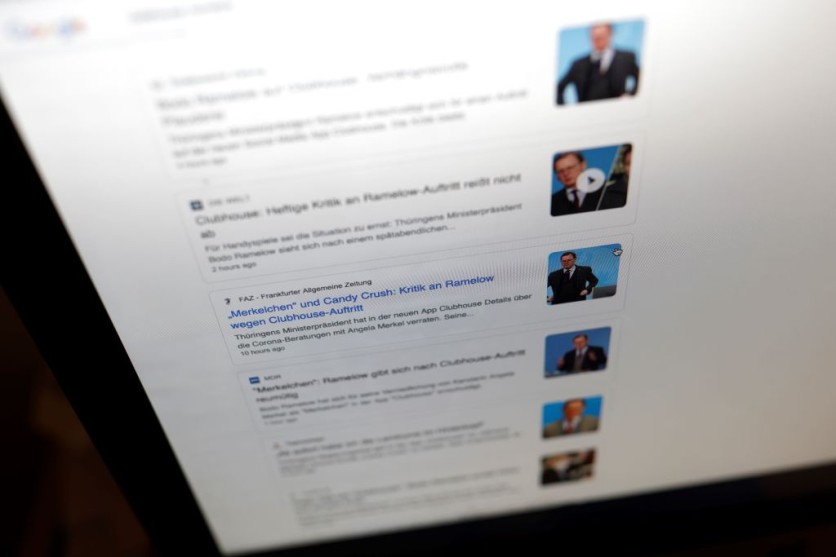Perplexity AI is reportedly the newest monetization outlet for news publishers as the tech startup will now be paying creators whenever their content is cited by the company's artificial intelligence chatbot.
Perplexity's head of business, Dmitry Shevelenko, stated that the company had been investigating the program in January, before publishers making allegations. The main reason for implementing the publisher program was to ensure the survival of Perplexity. To provide users with accurate information, the program relies on journalists to constantly generate new information.

(Photo : ODD ANDERSEN/AFP via Getty Images)
An illustration photo taken on January 25, 2021 in Berlin shows headlines of German news website articles, after Thuringia's state premier Bodo Ramelow admitted on chat app Clubhouse to playing Candy Crush on his phone during online pandemic response meetings with German Chancellor Angela Merkel.
Shevelenko clarified that the company is not eating away at publishers or rivaling them, but the company must contribute to ensuring a variety of thriving business models and revenue streams.
With the evolution of generative AI impacting search habits, publishers are seeking innovative methods to earn revenue.
The initial group of publishing partners for Perplexity consists of Automattic, Der Spiegel, Entrepreneur, Fortune, The Texas Tribune, and TIME. As a component of the long-term contracts, the publishers will be granted entry to Perplexity's APIs and developer assistance to develop personalized answer engines for their websites.
All employees will have access to Perplexity's Enterprise Pro offering, which includes improved data privacy and security features.
Perplexity AI's Advertisement Revenue Scheme
Perplexity has not yet begun showing advertisements on its platform; this will happen in the upcoming months. Shevelenko stated that the startup has secured top-notch brands in all major consumer and B2B categories.
For instance, if a user inquires about the best time to visit Tokyo, they may see advertisements for travel-related brands. Perplexity will split the revenue earned from the ads with the publishers whose content is used to respond to the queries. Perplexity refused to disclose specifics about the ad revenue split, but Shevelenko mentioned it would be in the double digits.
Perplextiy AI vs. Google AI Summaries
The way Perplexity AI makes money is very different from how Google was expected to earn from AI summaries. In May, Google unveiled a search results feature powered by artificial intelligence, which provides summaries of content from various websites in response to a search query. The update, at the time, will prioritize providing AI summaries to users instead of website links in Google search results.
According to sources, Danielle Coffey, the CEO of the News/Media Alliance, stated that the new feature would harm their traffic and give users less incentive to click on news publishers' content for monetization.
Coffey supposedly indicated that the small amount of traffic they currently get will be decreased even more. Moreover, Coffey's organization, which represents over 2,000 news publishers, has adopted a strong stance against AI developers using journalism, especially with a leading search engine consolidating its market dominance.
They claim they must once more follow Google's guidelines with a product that competes directly with news content, using their material to power it. Coffey characterizes this scenario as a "twisted form of innovation."AI summaries will only show up when Google's technology decides it's the fastest and most efficient way to catch a user's attention.
This scenario is most likely to occur when individuals are engaging in critical thinking or planning, or when they are discussing complex topics. Individuals will probably continue to encounter the typical website links and advertisements from Google when they search for store suggestions or weather updates.
Related Article : Cloudflare Unveils Tool to Combat AI Scraping Bots





